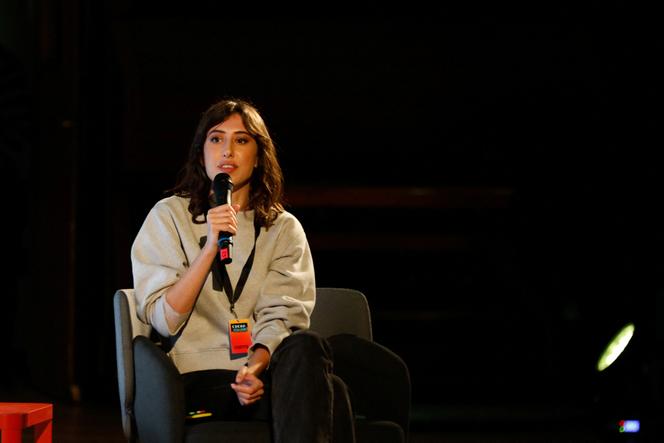


Iran confirmed on Monday, December 31, that it had arrested Italian journalist Cecilia Sala for "violating the law," state media reported. "Cecilia Sala, an Italian citizen, traveled to Iran on December 13, 2024, with a journalist's visa and was arrested on December 19, 2024, for violating the law of the Islamic Republic of Iran," the official IRNA news agency said, citing a statement by the culture ministry without elaborating. "Her case is currently under investigation," added the ministry, which oversees and accredits foreign journalists in Iran.
On Friday, Italy denounced Sala's arrest as "unacceptable," and said she has been held in Tehran's Evin prison. Italy's ambassador to Tehran, Paola Amadei, has visited her. Italian Prime Minister Giorgia Meloni's office has said she is "following the complex affair" closely. Italian Foreign Minister Antonio Tajani said on Saturday that efforts to free Sala were "complicated."
Sala is a reporter for the Italian daily Il Foglio, which said she is being held in Tehran's Evin prison. Il Foglio said Sala was in Iran on a regular visa "to report on a country she knows and loves."
Sala last posted on X on December 17 with a link to a podcast entitled "A conversation on patriarchy in Tehran." She had previously reported from Ukraine on its war with Iran's ally, Russia. Chora Media, an Italian podcast publisher for which Sala worked, said she had traveled from Rome to Iran on a journalist visa and was due to return on December 20.
Iran's culture ministry confirmed Monday that Sala had been allowed consular assistance and that she "has been in contact with her family by phone." Sala's arrest took place days after the United States and Italy arrested two Iranian nationals over export violations linked to a deadly attack on American servicemen.
Mahdi Mohammad Sadeghi and Mohammad Abedininajafabadi were accused of "conspiring to export sophisticated electronic components from the United States to Iran in violation of US export control and sanctions laws," a US Department of Justice statement said, with the latter suspect arrested in Italy at Washington's request. The statement added that the illegally exported technology was used in a January drone strike that killed three US servicemen in Jordan. Iran denied any involvement in the attack.
Several other Europeans remain in custody in Iran, which has conducted multiple prisoner exchanges with Western governments in recent years, often brokered by Oman or Qatar. French couple Cécile Kohler and Jacques Paris have been jailed since May 2022 on charges of espionage, a capital offense in Iran.
In June, Iran released two Swedes, one of them a European Union diplomat, in exchange for a former official held in Sweden, in a swap mediated by Oman. In 2023, Oman also brokered the release of six European detainees in Iran, including Belgian aid worker Olivier Vandecasteele, who had been convicted of espionage and spent more than a year in custody.
In September 2023, five Americans detained for years in Iran were freed in exchange for five Iranians in US custody and for $6 billion in frozen Iranian assets to be released by South Korea. Roxana Saberi, an American journalist, was detained by Iran in 2009 for some 100 days before being released. Also detained by Iran was Washington Post journalist Jason Rezaian, who was held for over 540 days before being released in 2016 in a prisoner swap between Iran and the US. Both cases involved Iran making false espionage accusations in closed-door hearings.
